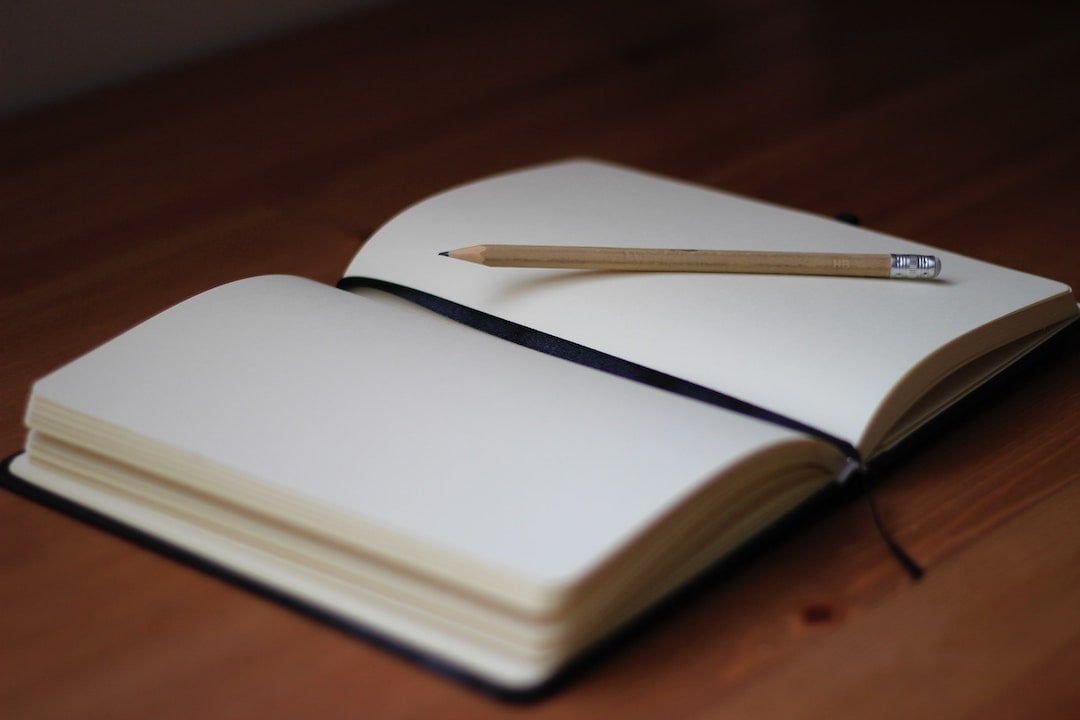How to Journal Effectively?
Posted By - Emma Burt

How to Journal Effectively?
Over the last few years, the increasing discussions on wellness and mental health is resulting in many people having healthier conversations about how they are, and developing healthier habits. One particularly popular one is journaling but, considering how simple an activity it is (just write a couple of things down each day), it’s surprisingly difficult for many people. So I thought I would explore what journaling is, how it might benefit you and how to journal effectively.

Firstly, why bother to journal at all?
Various studies have shown there to be physical, emotional and cognitive benefits to journaling from lowering blood pressure, processing information, better moods and even higher work and academic performance.
A big benefit I have found personally is that journaling allows me to organise my thoughts and connect dots in my mind. A lot goes on each day and taking the time to be in my mind and process it all helps me with creativity and stress.
In the same vein, I have also found that it can help deepen any learning. Thinking over new things that have happened, particularly if I have learnt new concepts, can help new learnings form more deeply and meaningfully in my brain.
Finally, journaling has helped me build self-awareness. By reflecting on how I am feeling and what I am thinking, I have been able to build greater awareness of how I behave and how I react to situations. Greater self awareness is a key factor in building emotional intelligence, a key trait in being an effective leader.
As an aside this is why I have built the practice of journaling into the Product Mastery Pathway that I run to support and grow product leadership in my clients.
Both myself and my clients and students have found huge benefits from the odd bit of journaling, whenever we have remembered to do it. There are two reasons for this when it comes to my own journaling. The first is that from a mechanical perspective, the physical act of writing can be hard for me.
The Hockey Stick Effect

Many years ago, on a very cold, grey, November afternoon, my hands were frozen against a hockey stick during a competitive match we were playing against another school. I played forward, so you can tell how good we were (not). During a rare moment when the ball came into my section of the pitch, another player slammed their stick into mine crushing my hand. It took many months to properly diagnose ligament damage in my thumb, which makes writing for a prolonged period very painful.
So, while exams became a nightmare, my injury also became a barrier to writing more generally. There can be numerous reasons why writing may not work for you – a physical reason, or due to a learning difficulty like dyslexia, or another reason for neurodivergence. However, with the benefits of journaling being so great, I wanted to find ways that worked for me. So, here are my tips for how to journal effectively;
First things first…to journal effectively get the content down
If you are going to journal, you need to get the content out of your head in some way. The good news is that there are lots of ways to journal effectively so experiment.
Writing
Even though I just said I find it hard to write, the process of transferring my thoughts from my mind to another medium is powerful. I just don’t write sentences. Instead I use mind maps, or just jot down random words and phrases that come to mind. For me, I still “think” in words so this technique allows me to get them out of my brain whilst not putting undue pressure on my thumb. I can then start to connect different thoughts with arrows and lines on the page.
Typing
Perhaps it is just me and the stage that computers came into my life, but I didn’t associate journaling with typing – though it completely counts! This can be easier if I do feel the need to write things out in full sentences. Plus, I can access it on my phone anytime should a thought come to me.
Voice Notes
Have you thought about recording your thoughts? Most phones have the capability to record memos and transcribing software could convert it to text if that is easier. Like typing this can then be easily accessible to you, to refer back to.
Drawing
If words really aren’t your thing, try drawing. Things that represent what is going on in your mind, the things that stood out for you that day. And if you can write letters you can draw! Remember, journaling is to benefit you so your drawings don’t need to make sense to anyone but you.
However you choose to get that information out of your head it doesn’t matter. Whatever works for you.
How Habit Helps Me To Journal Effectively

Once we have found a mode of getting the information down, the other common barrier is that many of us find it hard to make journaling a habit. I mean whose ‘to do list’ isn’t already long enough without yet another thing to do?!
Yet, to make the most out of the benefits of journaling, making it a habit is key. And here’s a great tip for you. It’s much easier to establish a new habit if you anchor it to an existing one. How did I get into the habit of remembering to take my vitamins? I took them with my morning cup of tea. How did I get into a habit of journaling? I kept a notepad by the side of the bed and made a few notes before I picked up my book to read at bedtime. What habits do you already have in place that you could piggy-back on to?
Effective Journaling in Learning and Development
In my last role as Head of Product, I found that when I was able to journal effectively it really helped me come up with ideas to solve problems with the products we managed, and ideas that strengthened the development plans for those who reported to me.
And this is why I encourage journaling as a core part of my work with product leaders. Both the Scrum Mastery and Product Mastery Pathways aim to achieve just that – Mastery. The journaling helps deepen your understanding of the concepts taught and monthly coaching sessions allow you to bring your real life experience back to the classroom. Plus, there is lifetime support through the online community and lessons.
How might regular reflection and processing of information help you in your role?
If you would like to talk more about the Product Mastery Pathway then get in touch.





